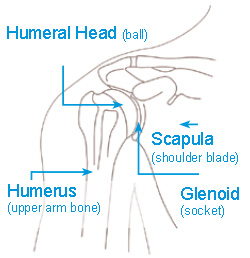
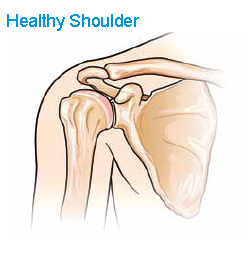
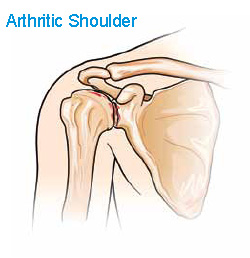
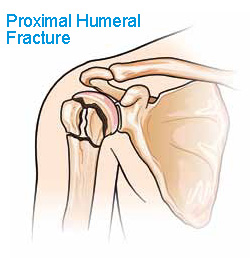
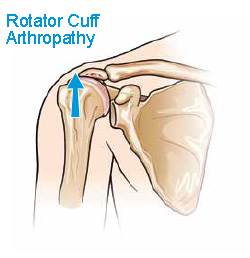
The shoulder is a ball and socket joint that is made up mainly of two bones. The ball portion of the joint is part of the upper arm bone (humerus). The socket portion is part of the shoulder blade. The ball fits into the socket, allowing the shoulder to move. The two bones rub together as the shoulder moves, and in a healthy shoulder, that movement is painless.
Unfortunately, over time, regular wear and tear or injury to the joint can result in significant pain. There are three common conditions that damage the shoulder:
- Osteoarthritis
- Proximal humeral fracture
- Rotator cuff arthropathy
Osteoarthritis
In a normal, healthy shoulder joint, the surfaces of the ball and socket bones are very smooth and covered with a tough, protective tissue called cartilage. The cartilage prevents direct contact between these bones and allows them to move smoothly over each other, without friction or wear on the bone surfaces.
The problems start when that cartilage is injured or worn away—which is actually the definition of osteoarthritis. The bones grind against each other, and that grinding hurts. Eventually, all that friction causes the bone surfaces to deteriorate. Unfortunately, there is no medication or treatment that will make damaged cartilage grow back.
Proximal Humeral Fracture
A proximal humeral fracture is just the medical name for a broken shoulder. (Specifically, it means a fracture of the upper arm at the shoulder joint.) The injury is especially common among older people who suffer from osteoporosis, which causes the bone to become more fragile over time—making it vulnerable to fractures caused by falls or direct blows, like a car accident.
Rotator Cuff Arthropathy
The rotator cuff is a group of muscles and tendons that holds the shoulder together and helps stabilize it and give it strength. Rotator cuff arthropathy is a combination of two types of damage—not only has the cartilage been damaged or worn away, the rotator cuff tendon that connects the muscle to the bone has also been severely worn or torn.
Treatments
Depending on the extent and cause of the shoulder damage, your orthopedic surgeon can recommend a variety of treatments, including oral medications or injections for pain and inflammation, physical therapy, and various types of surgery. But if those treatments have failed, or you aren’t a candidate for them, your doctor can help you determine if it’s time to consider shoulder replacement surgery.
